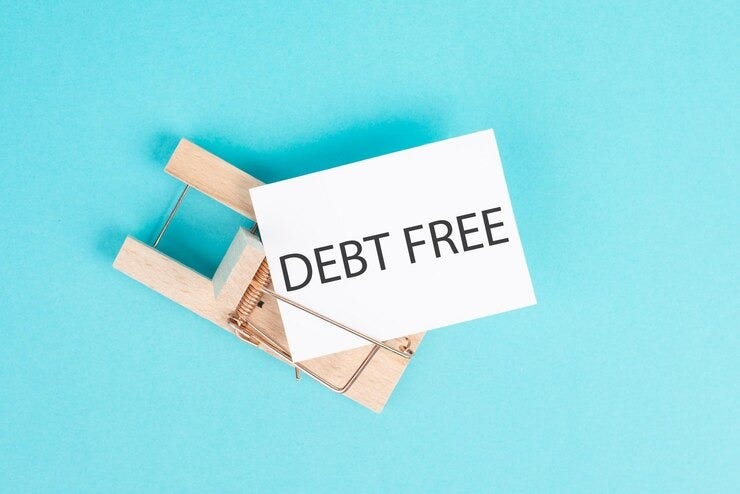Are you feeling burdened by high-interest debt? From credit card bills to unexpected expenses, debt can weigh heavily on us all. But there is hope. By mastering budgeting techniques you can begin the journey towards debt-free living.
In this comprehensive guide, we’ll discuss practical budgeting techniques that can help regain control of finances quickly. Payday loans as a potential short-term solution and long-term solutions will all be discussed as we explore these subjects further.
Understanding the Debt Challenge
High-interest debt can be overwhelming. These debts often carry steep interest rates, such as credit cards or short-term loans. With such high rates making progress towards paying them off is more difficult – sometimes leading to paying more in interest than the actual principal balance. This cycle can seem never-ending.
Dealing with high-interest debt can feel like an endless cycle, with payments going primarily toward interest rather than toward paying down principal amounts. When this becomes your reality, effective management strategies for finances must be explored immediately to stop this spiral from continuing.
The Basics of Budgeting
Budgeting can be an extremely valuable way of controlling your finances, offering an effective roadmap towards reaching your financial goals and maintaining stability in your personal life. A budget acts like an outline for how income, expenses, and savings will all interact. Using one will give a clear view of your current state and what goals must be accomplished to get there.
An effective budget starts by outlining all sources of income and categorizing expenses – this allows you to see where money is flowing and identify areas for adjustment.
Crafting Your Debt-Free Budget
To craft a budget tailored to your goal of becoming debt-free, follow these steps:
1. List Your Income: Begin by listing all sources of income, from salaries and side hustles to any additional sources such as freelance work.
2. Categorize Expenses: Group your expenses according to essential items (housing, groceries, and utilities) versus non-essential ones such as dining out and entertainment costs.
3. Set Financial Goals: Define clear financial goals within your budget. This might include paying off credit card debt, building an emergency fund, or saving for a future expense.
4. Create a Spending Plan: Once you’ve categorized your expenses, allocate your funds wisely. Prioritize debt payments within your budget. By allocating more funds to paying off debts, you can expedite your journey to becoming debt-free. Additionally, consider reducing discretionary spending, such as dining out or subscription services, to free up more funds for debt repayment.
The Role of Payday Loans in Debt Management
Payday loans offer a temporary solution when unexpected expenses require immediate attention, providing fast access to funds when in a pinch. But be mindful that payday loans should only ever be used responsibly as part of an overall financial strategy plan.
Payday loans may provide immediate relief; it’s essential that they be seen as short-term solutions within an overall budget plan. When considering payday loans as possible solutions, make sure your repayment capacity matches with that loan’s repayment schedule and explore alternative repayment solutions if necessary.
Staying on Track and Avoiding Additional Debt
Successfully managing high-interest debt requires discipline and commitment. Here are a few extra tips to stay on course:
- Create a Budget: Establish a clear budget outlining your income, expenses, and debt repayment goals. Sticking to a budget will help prevent overspending.
- Reduce Unnecessary Expenses: Identify areas where you can cut back on discretionary spending. This may involve dining out less often, canceling unused subscriptions, or finding more cost-effective alternatives.
- Make Timely Payments: Ensure that you make your debt payments on time to avoid late fees and protect your credit score. Automatic payments can help keep up with all your obligations more easily and on schedule.
- Avoid Accumulating More Debt: While consolidating your debt and working toward financial freedom, refrain from accumulating additional high-interest debt. It’s crucial to break the cycle of debt accumulation and focus on reducing what you owe.
Ending
Effective budgeting is the cornerstone of debt-free living. Create a budget, prioritize debt payments, and make sound financial choices to regain control of your finances. While payday loans provide quick relief during emergencies, be mindful that they should only ever serve as short-term solutions within an overall budgeting framework. For those seeking long-term solutions to high-interest debt, exploring debt consolidation options is a valuable step toward financial freedom.
